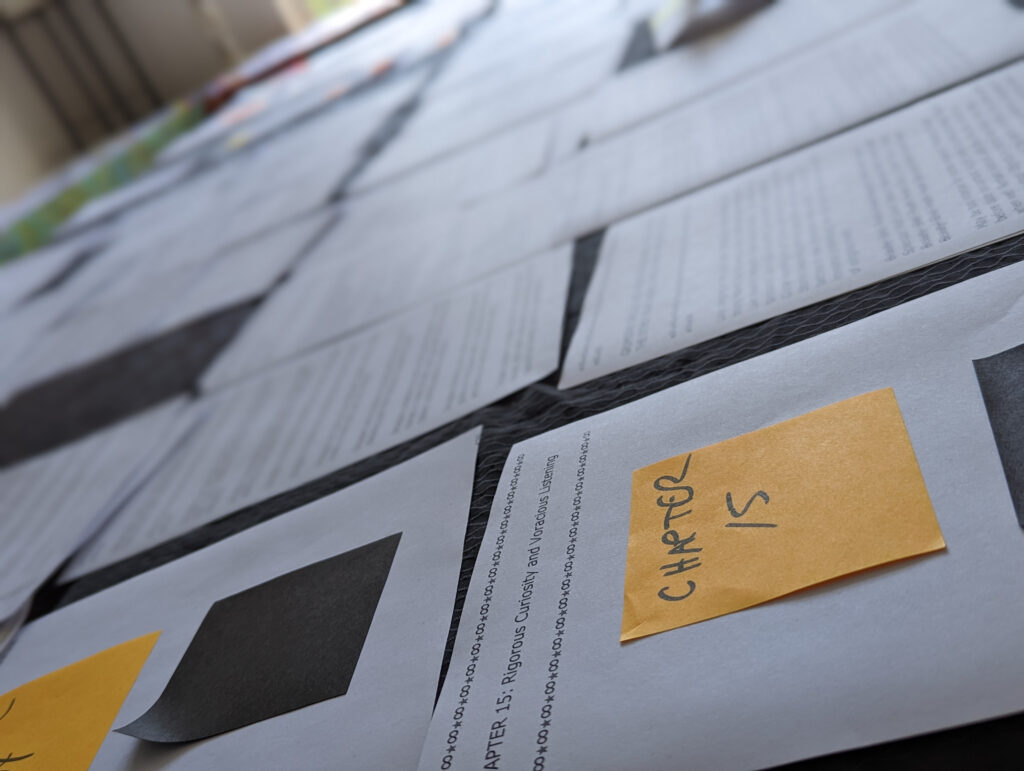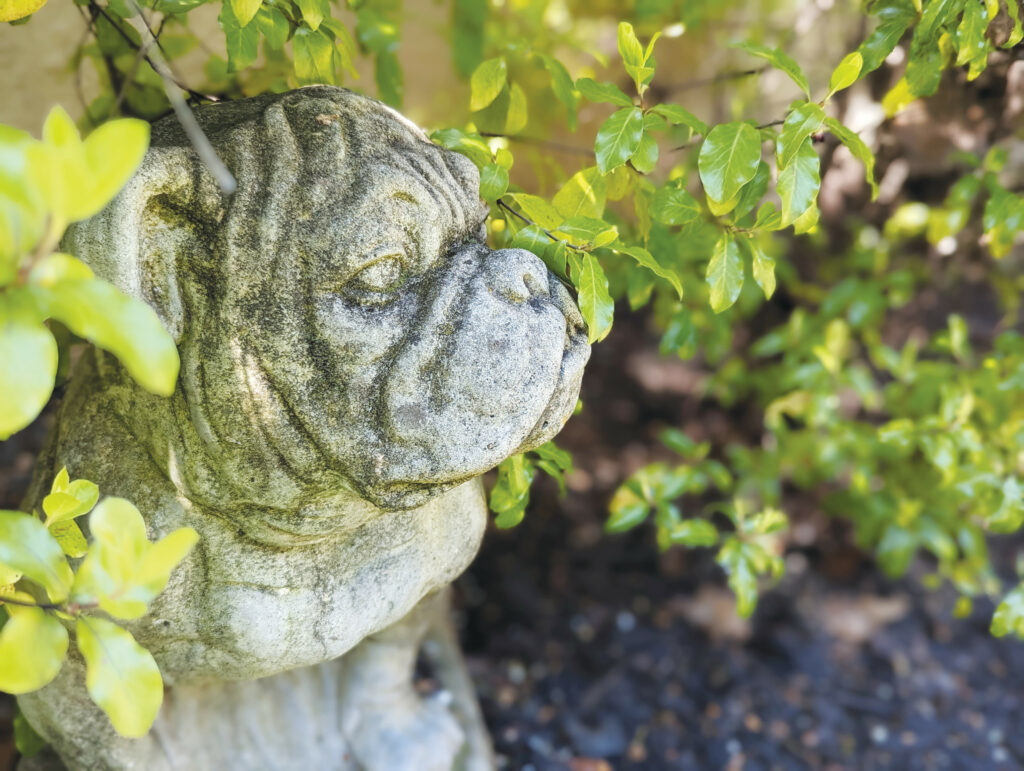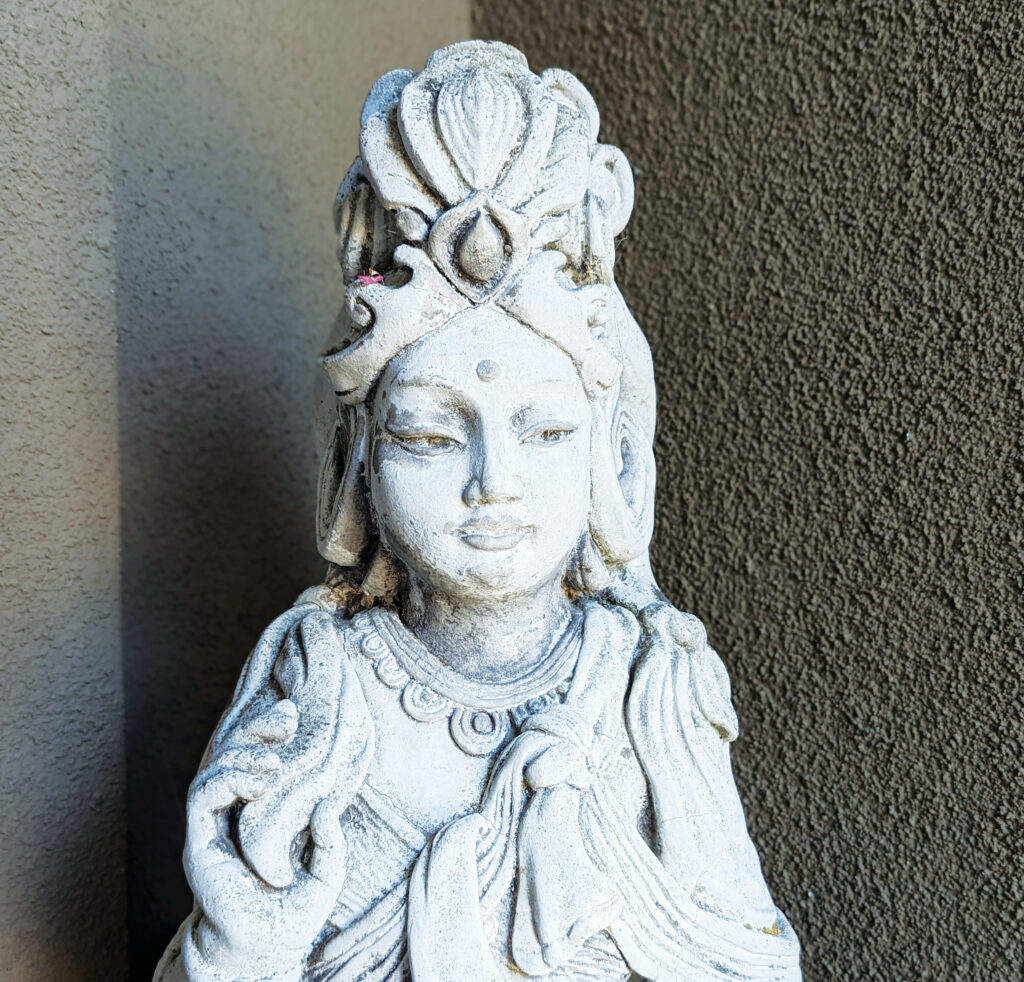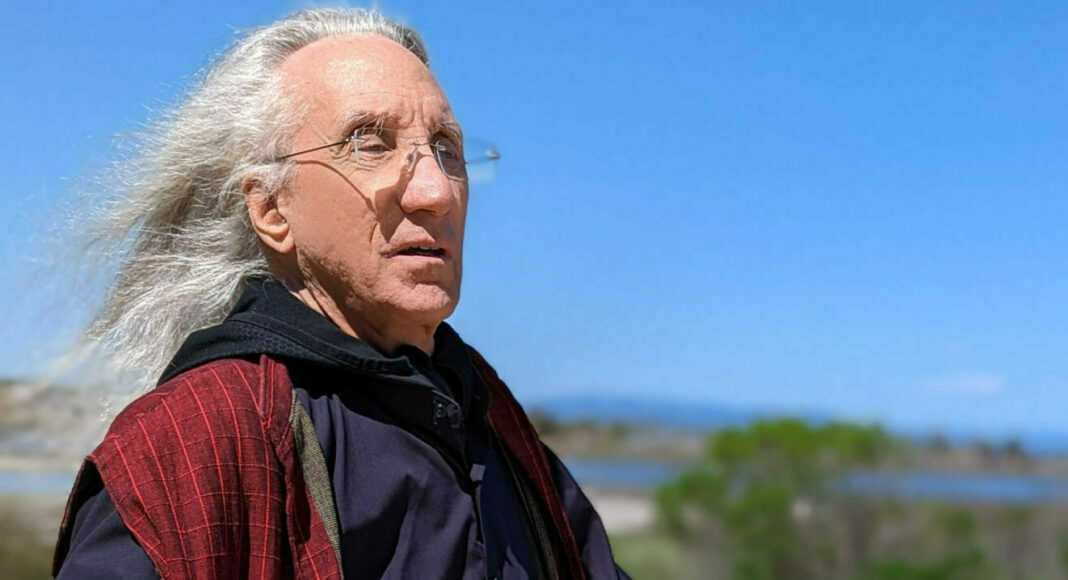Rob Brezsny’s “Free Will Astrology” columns, reflections and meditations fill thousands and thousands of pages.
His forthcoming opus, Astrology Is Real: Revelations from My Life as a Horoscope Columnist, covers 598 pages; his subsequent novel Lucky Storms adds enough (752 pages) that it will be split in two.

With this issue of Good Times, where the column first appeared back when Jimmy Carter was president, his horoscopes will be published for the 2,357th consecutive week.
Given the density and divinity woven into his insights, 70,000 words in columns alone every year delivers a lot.
But the soul of all that can be distilled down to one word: love.
Brezsny-style love.
Delirious, absurd, passionate, irrational, observational, strategic and sustainable love. Love for the finch at his birdfeeder, the eelgrass by the shore, the guy who stole his bike.
He describes it as “a chronic form of ecstatic awareness.”
Not long after introducing me to the phrase, he shared a piece he wrote in 2022 to help illustrate the habit, adding that the notes “are kinda beyond the parameters we’re working with, but you may enjoy it for your own purposes.”
Sign me up. And for Brezsny’s long-running newsletter.
Here appears that passage, in part:
In order to understand anyone or anything, you have to love it. I don’t mean romantic passion from it, or express any version of love that is tinged with expectation or sentimentality …
To open yourself up with love to an iris or redwood tree or hermit crab is to assert that you find it worthy enough to bestow blessings upon; and furthermore, that you find it worthy of communicating with …
You’re proving you’re receptive to its specific intelligence speaking through its special language—not your own intelligence and language.
This gives the living thing—iris, redwood or crab—a great gift.
I’m not being metaphorical or poetic here. I’m not using fairy tale logic. My meaning is literal…
The gift you receive is double: You’re able to get out of yourself, able to transcend your narrow interests and intelligence sufficiently, to learn how to understand the iris or redwood or crab in its native tongue.
WELCOME TO SANTA CRUZ
Conversations with Brezsny for this piece traversed all sorts of places—readers of his column, which appears in 90-plus publications in North America and Italy, France, Japan and the Netherlands—know the far-flung flight pattern. I was most interested in unlocking that awareness.
But first, his tale had to travel to Santa Cruz.
His arrival on these shores came partly inspired by a scribble on a bathroom stall at a Roy Rogers restaurant in North Carolina: “I got Santa Cruzified and Californicated and it felt like paradise,” it read. “You know you’ll never become the artist you were meant to be until you come live in Santa Cruz.”
The would-be oracle listened. By 1978, he was rotating between a sleeping bag in San Lorenzo Park and a room with a shared bathroom in the original St. George Hotel. To supplement his food stamp diet, he would sit through an hour of service and sermon at a local church to enjoy lentil soup and a peanut butter and jelly sandwich.
The theft of his bicycle—which he views as a blessing—sent him to the pages of Good Times. There, amid other classified ads, he saw the newspaper was looking for a new astrologer.
His first column appeared on Jan. 26, 1978, and has returned every week since. The related tale occupies a chapter called “Accidental Bonanza” in Astrology Is Real.
“I considered newspaper horoscopes to be an abomination,” he offers. “Without exception, they were poorly written and dull. They encourage people to be superstitious and often made the spurious implication that astrology preaches predetermination and annuls free will.”

Along the way, Brezsny studied poetry at UCSC with William Everson; he worked as a restaurant janitor; wrote “Dark Ages,” a song recorded by Jefferson Starship; he anchored three popular rock bands (Kamikaze Angel Slander, Tao Chemical and World Entertainment War) and ran for Santa Cruz City Council.
As part of his council campaign, he published a Little Yellow Book, a wink to Chairman Mao Tse-tung’s Little Red Book.
“Thomas Jefferson and I constitute a DREAM TICKET because we are an extraordinarily balanced team,” he writes in Little Yellow Book. “He’s from the south, I’m from the west. He’s an Aries, I’m a Moon Child. He’s an aristocratic populist, I’m a poor artist. He’s a law-abiding, law-creating agnostic, I’m an outlaw saint. He’s a celebrity spirit, I’m a little known human. He’s had five children by a woman he kept as a slave, I’ve had no children by women who are fully my equal.”
His magic thinking clicked with locals. His campaign was so successful he took out an ad in the Santa Cruz Sun asking residents to reconsider voting for him (i.e., Please don’t!) because his platform was performance, not politics.
Meanwhile, though he was born in Borger, Texas, spent his childhood in Michigan and Ohio, lived as a teenager in New Jersey and has called Marin marshlands home for three decades, Brezsny came to understand how he’s constructed on a molecular level.
“I’m made of Santa Cruz,” he says. “I’m Santa Cruz taken to the world at large.”
WHERE THERE’S A WILL
Like “Free Will Astrology” and Brezsny himself, Astrology is Real checks many thought boxes while answering its underlying question: “Yes! Astrology is real—though not in the same sense that the Golden Gate Bridge is real; astrology is real in the way that an Emily Dickinson poem is real.”
“It’s a blend of a memoir, oracles for readers and essays about the art of astrology and mythopoetic intelligence,” Brezsny explains. “The eclectic tone ranges from pop to literary; from lyrical to philosophical; from searing critiques of hyper-rational, machine-style thinking to a celebration of the scientific method and soulful thinking.”
Like his previous book, Pronoia Is the Antidote for Paranoia: How the Whole World Is Conspiring to Shower You with Blessings, it doesn’t require linear learning. Jumping in at p. 105 for an avalanche of inspiring quotes (“Sentiment without action is the ruin of the soul”) or p. 483 for sign-specific reflections (“SCORPIO: What was the pain or suffering that healed you the most?“) is not only doable but encouraged.
Brezsny describes his books as workshops for his chronic-ecstatic awareness. The “chronic” part synergizes with the prolific pace he writes: This awareness he keeps is a practice, not an accomplishment; a verb, not a noun; an ongoing trip rather than a destination.
And he’s inviting everyone along for a ride on the zodiac.
Way back when, last time I visited you in Marin—on a blue moon right before the end of the ’00s—you told me the next project would be a book on mastering a “chronic form of ecstatic awareness.” Does that hold?
ROB BREZSNY: In some ways, all my books are about that. The books serve as my laboratory to cultivate, refine and deepen that awareness, to make it work in new and ever-fresh ways.
For me to live in ecstatic awareness, for the prayer to work, I have to keep reinventing it. That’s the paradox, the great uproarious up-flow of creative power.
You mention “altered states” as key.
The key to chronic ecstatic awareness is to continually cultivate altered states. I don’t think we need psychedelics for that, though I’m all in favor of that technology for those who find it helpful.
For me, the playful work of getting into altered states is not just an either-or thing. It’s not a matter of either being in routine, mundane consciousness or else tripping one’s brains out. There are a trillion in-between altered states.
We can create altered states from moment to moment with our beginner’s mind unfurled—being willing to play with and love whatever’s in front of us. The fun trick is to be in a state of full-body readiness in which we are surpriseable and receptive to the possibility of being delighted, influenced, educated.
Pure perception is our ever-available entry into altered states. If we open our eyes, open our ears and become fully welcoming to what’s in front of us, we’re going to be changed. Every moment brings something we’ve never experienced before.
An example right now would be how your question germinated in me a stream of revelations and ideas.
[Meditation practitioner and molecular biologist] Jon Kabat-Zinn said, “Mindfulness is wise and affectionate attention.”
Borrowing from the Hindu school of Lila, I’m very much immersed in the understanding that life is the divine play of God and Goddess. We are participants in a sublime, mysterious art project.

At the core of the action is relationship and interplay. The intimate back-and-forth constantly reinvents and reinvigorates and reveals. As we improvise and transform, responding to each other’s improvisations, we have the blissful power to be each other’s muses.
Elizabeth Gilbert said, “You need to learn how to select your thoughts just the same way you select your clothes every day. This is a power you can cultivate.”
I choose to be inclined toward coalescing altered states of awareness that override and outwit my habit mind.
And that receptivity is important, as you point out in a chapter from Pronoia, even when you encounter, say, white supremacists.
My habit mind tends toward progressive political ideas. That’s fine. If my habit mind happens to be conditioned by something noble and beautiful, I approve.
But I remind myself not to be continually enraged about the toxic culture that evangelical Christians create and its danger to human life. I can’t live with grace if I’m pumped up with overwhelming indignation, for one thing.
And though the wrath might motivate me to take action on behalf of social justice, which is a good thing, too much anger can be draining and demoralizing.
Talking with my therapist, I came to a useful realization: The right-wing bigots and haters are acting out of primal terror. They are scared to death of the beautiful new world that’s coming. I saw and felt this in a visceral way because I was willing to momentarily set aside my fury, my habit mind, so as to behold their naked depths.
This realization doesn’t make me any less fervent about neutralizing the bigots’ toxic effects. But it enables me to relax into a more visionary and strategic understanding of what I’m up against.
I admire the Buddhist practice of adopting detachment from turmoil and angst. It’s healthy for me to cultivate a serene, poised center of gravity in the midst of chaos.
But the objectivity I strive for in my detachment is very warm and wet. It’s imbued with love and empathy. That’s the only way I can truly understand anyone or anything.
One of my favorite thoughts from you goes like this: “True meaningfulness doesn’t exist unless it’s in relationship to someone or something,” which you echo later (“My happiness is meaningless unless I’m working on the happiness of others.”) Can you expand on that?
The planet Uranus in our charts indicates where our greatest gifts overlap with our greatest genius. [More on p. 275 in the book.]
[From Astrology Is Real: “I believe [Uranus] signifies the talents and superpowers we harbor that would be most beneficial to others. If we fully develop these potentials, they will express our unique genius and be useful to our fellow humans.”]
As theologian Frederick Buechner writes: “God calls you to the place where your deep gladness and the world’s deep hunger meet.”
Another of my favorite thoughts of yours: “I believe the imagination is the most important asset we all possess.” Please riff.
Imagination can be an energy drain, a fear-inducing curse if used lazily.
But if used well, it’s how we create everything beautiful in our lives. It’s the origin of all manifest.
See my piece on p. 139 in Astrology Is Real, titled “You Are a Prophet.”
[“It’s downright self-destructive to keep infecting our imaginations with pictures of loss and failure, doom and gloom, fear and loathing. The far more sensible and practical approach is to expect blessings.”]
You often return to the importance of dream work.
One of the great places to go exploring the depths is dreams.
They are full of puns, unexpected events and playful twists and jokes.
They surprise.
That’s a good statement about the nature of playing in the depths: You have to be improvisatory, ready for anything …
Stars are still there in the sky when the sun is up; we just can’t see them because the sun is so bright and loud.
Likewise, stories just keep flowing ever-on from our depths, though they may be less visible when daytime awareness comes, and our ego awareness is so bright.
Some of those endless stories are dull, shaggy dog stories or the activities of our habit minds processing nonsense. But some are evocative and interesting and potentially useful or inspirational.
Just as dreams come in all genres, our ever-flowing stories are of all genres. Our stories offer us a nonstop array of altered states.
What did you say in the ad discouraging people from voting for you for Santa Cruz City Council?
I was honest. I wanted to disabuse potential voters of the notion that I was a straightforward, no-nonsense candidate.
I assured them poetry and performance art would be a key part of my repertoire as a City Councilmember—just as they had been during the campaign.
I told them I would consult my dreams and use astrology and divination as I pondered what positions I should take.
In other words, I would act like myself.












Wow, I’m just now realizing ( at level 62 ) that there is so much more to you than horoscopes! I want to thank you for those, by the way. I started reading them in The Nashville Scene in my 20s.? Your gift has served me well. Never a dull moment, leaves me thinking inward, and yes, I’ve always felt the love.
Thank you, Thank you, Thank you ?
Hi Rob, we met decades ago briefly, when a friend of mine was living with you in Marin.
My partner, Doug, and I now live on a small Portuguese island in the Madeira archipelago off the coast of Africa.
Day after day, I am grateful for your.”friendship” on this often contentious Book of Faces, as I also am a devotee of chronic ecstatic states,
I feel that through this connection I am able to float with and dive into the most inspiring insights, as if we were still living in Santa Cruz or San Francisco from our peaceful, gorgeous island??on the other side of the planet.
Grabbing a copy of the Good Times and reading your Free Will Astrology because a a part of my frequent visit to the Monterey Peninsula. I would use an element of this reading as my mantra for my visit. You have been with my on my journey for over 20 years. Thank you.
Congratulations, Rob, for such a long and exciting career. I turn 45 this year and have been reading your column for over 30 of those in the Chico and Sacramento News & Review publications. Cheers!
Dear Rob:
A long time reader of astrology, I came across your forecasts while traveling through New Mexico about a decade ago. Returning to San Diego, I found your website and signed up for the newsletter.
Thank you for the mixology of stars, poetry, philosophy, rants and love. They always give me and mine something to think about.
Hi Rob! As I read the excerpts of the interview, along with similarities with Buddhism, I couldn’t help seeing how similar some things you say, are to what St. Francis of Assisi also believed. It is just more evidence that human-made “religions” are exactly that: made by humans, and that REAL reality is so much more, and so much more AWESOME (in the original definition of the word!), than we can ever imagine! Thank you for being YOU!!!
Rob, I’m such a huge fan. I started regularly reading your columns in the Austin Chronicle probably 15 years ago, and did my midlife crisis in the most AWESOME way thanks in part to your weekly encouragement! Thank you for being you.